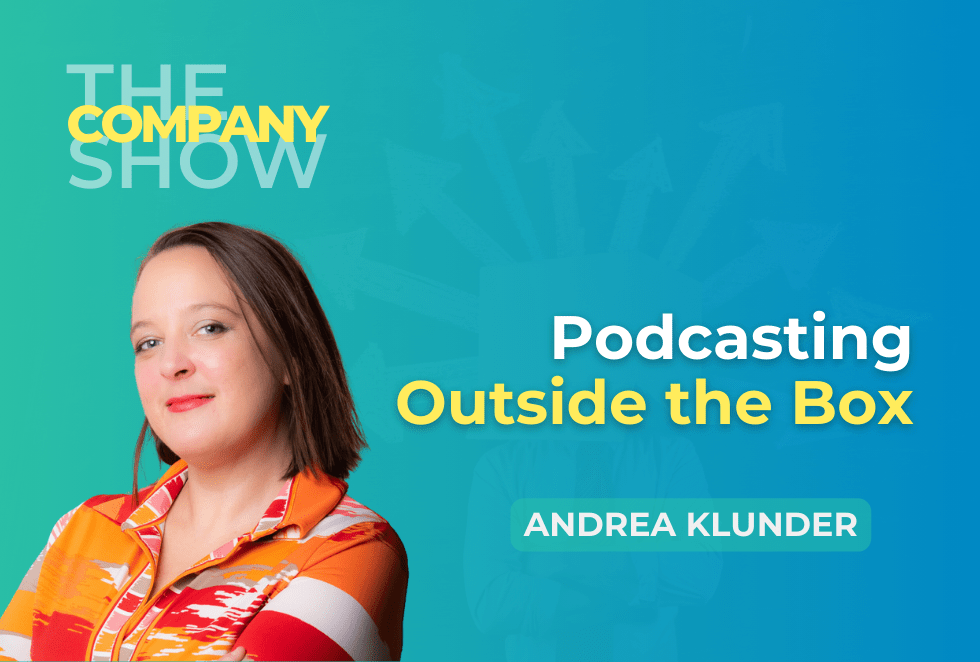At One Stone Creative and Podcasting for Business, we’re all about creating podcasts that work for… businesses! And we generally work with smaller businesses — teams of 20 or less who need a partner to take on the business area of a show.
Being in this space gives us tons of flexibility about the kinds of shows we create and the kinds of results we generate with them – but there are other kinds of organizations with different structures who are doing really interesting things with Podcasting too.
My guest today has some incredible examples of how non-profits, advocacy groups, and even governmental organizations are using podcasts to achieve their unique missions.
Andrea Klunder is the founder and lead producer of The Creative Impostor Studios, a boutique agency producing award-winning audio documentary and podcast experiences for artists, organizations, and creative leaders who are making a cultural impact through meaningful storytelling.
We’re going all in to talk about out-of-the-box podcasting — here’s the conversation, I know you’ll enjoy it:
Tune in to the full episode to learn about:
- The Creative Impostor Studios
- Different Paths to The Podcasting Industry
- Non-Profit Versus For-Profit Podcasting
- Balancing Audio and Print for Maximum Impact
- Intuition, Data, and Communication
- The Priorities of Nonprofit Podcasting
- How Podcast Starts for Organizations
- Turning Podcast Excitement into Strategy
My book, Podcasting for Business is now available on Amazon — learn more about it here.
The Creative Impostor Studios
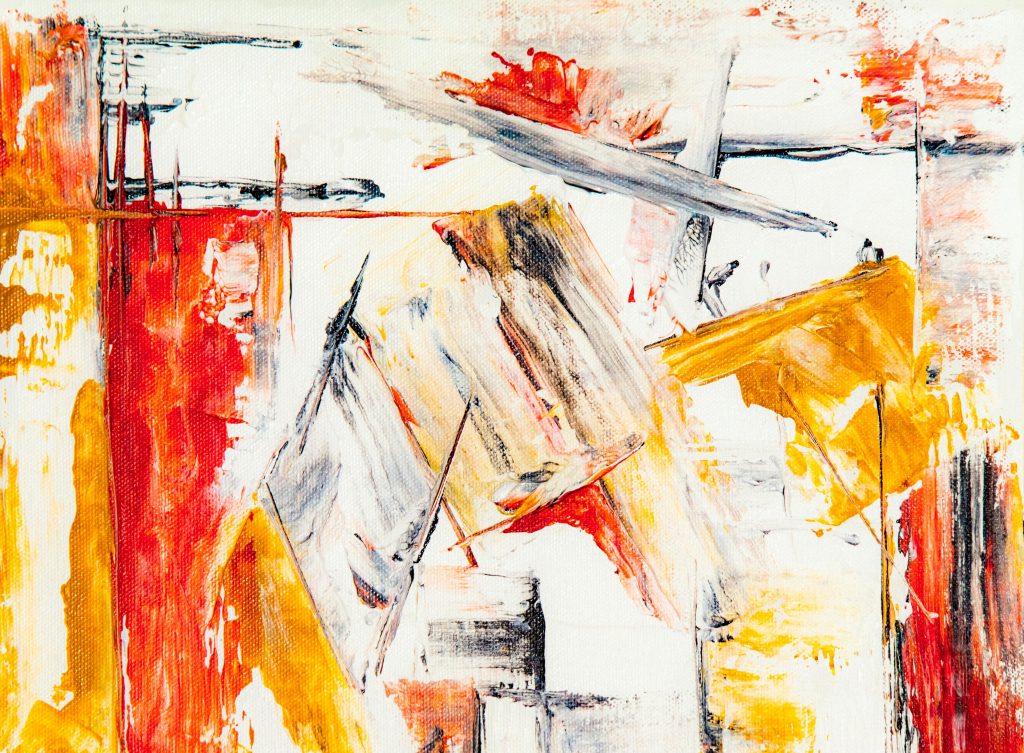
Andrea: “That name came about around 2015 when it became clear to me that I needed to do something. I had closed a business and filed for bankruptcy and had no job. No business and not a lot of money at that point — what am I gonna do? What do I do next?
And a lot of people had been mentioning podcasting to me. I had started listening to podcasts. I was interested in it. I have a background — my bachelor’s degree is in broadcast media and mass communication, and I had some random pieces of audio gear lying around. So I thought, you know what? Let me see if I can do this podcasting thing.
I don’t really know how to make a business model out of it. I don’t really know how to make money doing it. I know that other people are, but let me just see if I can make the thing.
My partner and I were brainstorming one night, and I don’t know who said it first, but one of us said, The Creative Imposter.
When I started saying that name, people would be like, oh, creative imposter. What’s that? Wait, I think that’s me. I think I have that. Whatever that is, I think I have that.
So it just started as a podcast. And really the whole point of the podcast was, can I do this, and we’ll figure out the rest afterward and then, do I like doing this?
And the answer to both of those things was yes. And then what happened is one day I realized that people were asking me how to start their own podcasts and all of a sudden, ding, oh, this is not just a coffee conversation. This is something I can charge money for.
So I said, casually on one of my episodes, if you’re interested in launching a podcast, I can help. Schedule a call with me.
And someone did — a complete stranger in a different state who was a lawyer, scheduled a call with me about starting a podcast. And I was like, what?
Somebody, what? You know that imposter syndrome? Who am I? I’m not a launch consultant. I started my podcast, but who am I to tell someone else?
We had a meeting and she was like, yes, I want to hire you. How much does it cost?
I hadn’t even figured out a price, I hadn’t figured out a package. I was like, I will get back to you. And so then I helped her launch her show. She wanted me to teach her how to edit. We set up a call to start doing editing, coaching, and 10 minutes into that session, she goes:
Okay, we’re gonna stop right now. I’m still gonna pay you for the hour. I already know. I don’t wanna do this.”
Megan: “That’s so relatable.”
Andrea: “Can I just hire you to do it for me? And again, I had never set out to edit other people’s shows, but I was editing my own and so I needed money — yeah, why not? I can edit your show.
That is the very long roundabout way of saying that now we have a boutique agency where we work with business owners. But even more specifically, we work with nonprofit organizations, creative entrepreneurs, artists and government agencies in the arts and culture field to create podcasts somewhere between interview style shows all the way to narrative documentary-type shows.
We do strategy and consulting and launching and designing and developing the show and audience development and production and post-production. So I say boutique because we only work with a handful of clients at once, but we really do a lot with those clients.”
Different Paths to The Podcasting Industry
Megan: “I wonder how many of us in the podcast industry started kind of exactly that way.
I went about it the other way and I actually was producing for five years before I had a podcast of my own. But I came into the industry not knowing anything about podcasting either.
It was my business partner who had a broadcast audio background who was like, hey, we should do this.
I love that you are open to it. You took what came and then, over time you worked with a bunch of different people, figured out what you like doing, found this amazing niche where you can really flex and be that total solution.
I think it’s great and someone’s got to be working for the governmental organizations of the world. They’re doing such important things and are so often so poorly thought or unfairly.”
Non-Profit Versus For-Profit Podcasting
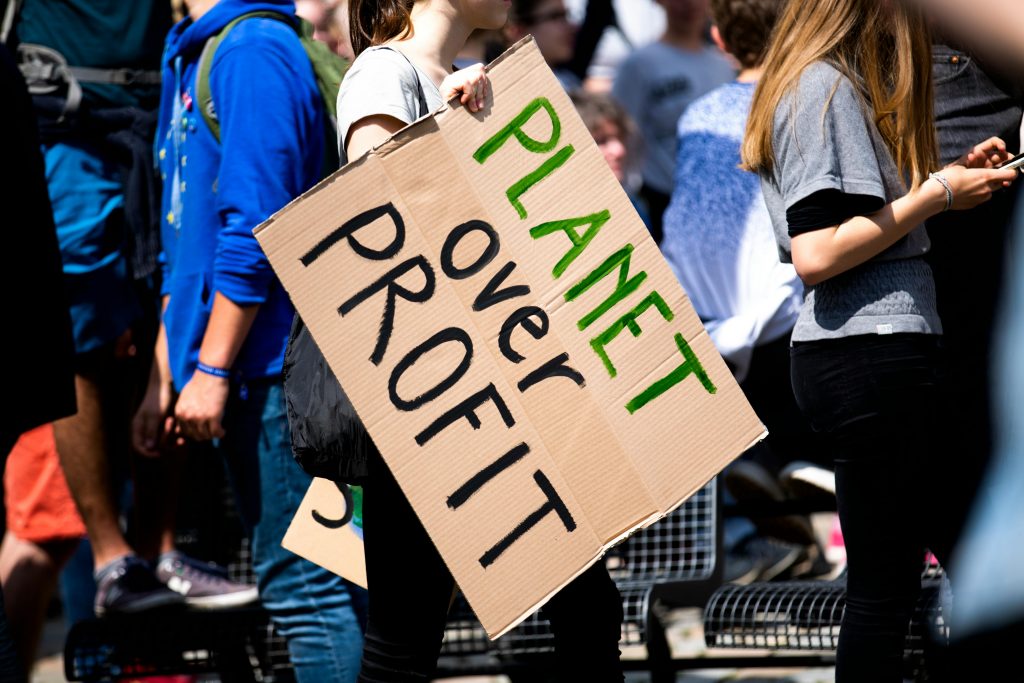
Andrea: “There are some things that carry over in terms of thinking about podcasting for business and business owners, but there are some things that are very different when you’re working with a nonprofit or with a government agency.
Some of the goals, objectives, and what matters to them or what they’re looking at are different.”
Megan: “Do you have a couple of examples of that? What is different about a nonprofit or government organization compared to a for-profit, let’s make some money business?”
Andrea: “One example that I have is we have a show called Encounter Culture, and this is the official podcast of the New Mexico Department of Cultural Affairs.
Cultural affairs, if that sounds very vague, has a lot to do with the creative arts, performing arts, history, science, and archeology, all of these things fall under cultural affairs. And they have several in the state of New Mexico, they have several state-run museums, and then also a bunch of historical sites that are run by the state.
And so what they came to us with is they just had their hundredth anniversary of this legacy quarterly print magazine that’s very lovely. It’s very well produced and it dives into the behind-the-scenes of some of the exhibitions that they have.
Storytelling of the history of different cultures that exist within that state, and weaving together the tapestry of everything that makes up the culture of New Mexico and how that’s shifting and changing.
And their marketing director was like, this is great. This isn’t going anywhere. People love this magazine. It’s called El Palacio. However, not everyone is into print and it is very costly to produce, print, and distribute it into the world, and we want to add to what we’re doing. We want to continue to promote and protect the legacy, the cultural legacy of the state, and what is a way that we can do that?
A podcast.
And so what we looked at was how can we leverage audio media specifically to supplement that print media and reach a different audience in some cases, and the audience that already is bought into that publication in a new way where they can consume stories that are not the same as what’s in the magazine (but they’re complimentary to it.)”
Balancing Audio and Print for Maximum Impact
Andrea: “The magazine goes out quarterly and the editor-in-chief of the magazine is our podcast host and we are now on our second editor.
So the who we started with left the agency and moved out of state — can’t work for the state of New Mexico if you don’t live in New Mexico. But she moved on and someone who had been one of her writers took her space, and it was a great transition because she had already been a guest on the podcast so she knew a little bit of this behind-the-scenes experience and was able to transition into that role of host.
As the editor, she really is instrumental in deciding what are the stories we can potentially have, what will work well for audio, because she’s used to doing interviews in a journalistic sense for print. You would think that it would be the same skillset to do an interview on a podcast as it is to do an interview for a magazine article but they’re actually different.
Some skills overlap, some skills are very different, and so that’s been fun to say, well, this is a great story, but that person is not necessarily a compelling interview guest, but it’ll be an interesting article — so that’s gonna go in print versus, this person is a walking encyclopedia of knowledge who loves talking about archeology, and they’re so quirky and funny — they’re gonna be a great podcast guest, so let’s book them on the show.
The show is seasonal. We do two seasons per calendar year and each season, right now we’re at six episodes per season, so it’s 12 episodes per year, which is not very many. So we really have to pick and choose what those topics are gonna be.”
Megan: “That’s really interesting. It’s almost like all of the content coming in and then a decision-making process being, this is the platform that this content belongs on, and this is the platform that this other content belongs on.”
The Podcast Versus The Magazine
Megan: “For the organization that’s working on it, how do they feel about the podcast compared to the magazine? Does everyone love it? Are they like, this is the redheaded stepchild of our organization, or what’s the feeling?”
Andrea: “It’s hard because it’s not specific to them. I’ve seen this across a lot of organizations that I work with, is that the challenge with podcasting in large organizations is that often, you have a champion of the podcast who is someone who loves the medium of podcasting and believes in it, and gets it, and they are the one to pitch the idea, they are the one to find the budget for it, they are the one to put it together.
Then you will always have decision-makers somewhere that you have to constantly prove yourself to because they’re like, I don’t get it. Our Instagram posts get so many more clicks. Then our podcast gets downloads, and I’m like, not the same thing.
These things are not equivalent. You see a number over here and you see a number over here, but it’s not an apples-to-apples comparison. There’s a little bit of education that always has to be done. A lot of my small business owners, they’re on retainers. They’re the ones that make their own decisions. I don’t have to renew a contract every season or every year with them.
Whereas with my organizations, every year — okay, where is the budget coming from? What do we need to change in terms of scope? Can we move anything in-house? How can we save money? I need to pitch this to the board and justify why it exists and why I’m spending this amount of money on it. Can you help me?”
Intuition, Data, and Communication
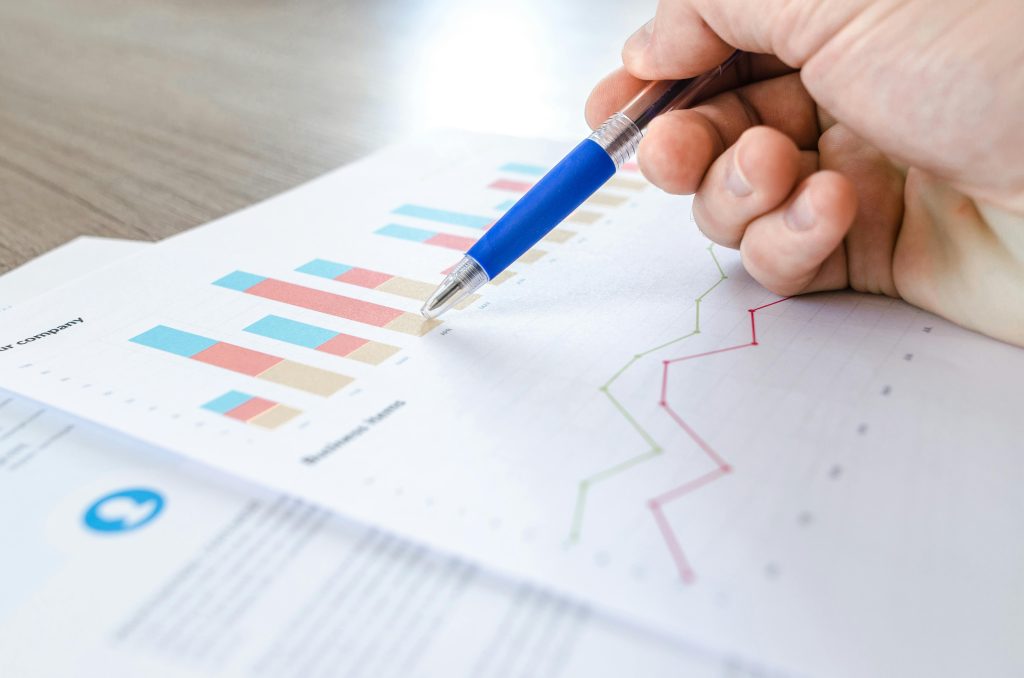
Megan: “We’ve seen that a lot too, and I think you’re exactly right, whether it’s organizations or larger companies, if there’s not an advocate for the show who’s actually on the inside really working for it, it’s not gonna happen.
There’s just too many layers of decision being made by people who don’t even maybe know what a podcast is. And that’s a real challenge.”
Andrea: “You know, with that legacy print media, their numbers are bigger than ours because they’ve had a hundred years to build up that audience.”
Megan: “If my podcast launched a hundred years ago, the downloads would be really impressive too!”
Andrea: “And that’s the thing, their numbers are bigger, but our numbers are growing and the print numbers are staying about the same, so what exactly are you looking at to measure the health or the success of that outreach medium?”
Megan: “Now you’re getting into the whole issue of how to meaningfully communicate data, which is like a whole kettle of fish.”
Andrea: “I use a lot of intuition when in that category.
I’ve been making friends with data, which we had a whole conversation about. I’ve been learning how to interpret it a little bit more, which is great, but a lot of it is me staring at stats and numbers and then having conversations with my clients and just somehow knowing things.
I don’t know how that works exactly, but that’s my approach.”
Megan: “I mean, it could be magic, but it could also be that there’s an intuitive human sense for understanding information. It’s probably happening in the background and you don’t necessarily know what the front of your mind is until you start talking about it, but the information is in there. It has been cataloged, it has been organized exactly.
You might be interested in the work of Gini Dietrich. She does the, The Peso Model and runs The Spin Sucks — all about meaningful data and communicating it effectively.
She developed The Peso Model, which is a paid, earned, shared, and owned media and has so much great material about how to communicate it, especially to decision makers who are not maybe inclined to be receptive to numbers.”
Andrea: “I will definitely look that up.”
The Priorities of Nonprofit Podcasting
Andrea: “Most of the time what I see, just lurking around social media and places like that, or even listening to other podcasts about podcasting, especially when we’re talking about entrepreneurship and we’re talking about small business, there is a focus on the podcast as an extension of your business or a marketing mechanism for your business.
So there is a lot of focus on growth. There’s a lot of focus on audience numbers, download sizes. There’s also a lot of focus often on, how do I grow my audience? How do I get paid? These are the two most common things.
In the nonprofit space, there’s a lot of room for creativity in terms of what you’re actually leveraging your podcast for, and often it’s not about getting people to buy a thing, like the example that I gave with the New Mexico Department of Cultural Affairs.
They want people to go to their museums, so they are hoping you will hear an episode about the exhibition that is happening at the Museum of International Folk Art, and you will be compelled to go check it out.
But it’s also the other way around too.
You are at the Museum of International Folk Art, looking at an exhibition and you are curious about it. You’re inspired by it and you wanna dig deeper and learn more about that, and it helps to deepen your connection with the work that the department is doing.
So a lot of it is about whatever the mission of that organization is, that they receive tax-exempt status if they’re a nonprofit, that they receive tax-exempt status from the government in order to fulfill a mission that is beneficial to society — that is what a nonprofit is for.
If you can help them fulfill that mission in a way, then you are doing your job.
Example 1
I have an opera company that is a longtime client and I work not with their ticket sales and marketing department but with their community engagement department.
A lot of what they’re doing is bringing in people who are working with them on certain community engagement projects and deepening those relationships with their community partners, with the youth that they serve, with artists who are engaged in that work of engaging with populations around the opera.
This may grow new people into opera subscribers or ticket buyers at some point in time. But the point is the relationship-building and the meaning-making that happens as a result of those conversations that we’re having.
It’s a lot about what the hosts can learn from the guests that they’re bringing onto the show.
Example 2
We had a nonprofit that we worked with that was an advocacy group. It was the Institute for Justice and they have a clinic on entrepreneurship in Chicago. They did a limited-run series that was a listening tour and what they did is they went out and interviewed small business owners across Chicago in all kinds of different types of businesses and industries.
What they really wanted to know — the name of the show was, how’s business? That’s what they wanted to know.
How’s business, how’s it going? What’s working? What’s not working? What government policies are getting in your way of running an effective business? What is important to you right now? What are you working on? What would be really helpful for you?
Then the organization could get a feel for the vibe of what’s going on in the city for small business owners who we are here to serve. And that would help them sort of shape their initiatives and shape their intentions and their priorities going forward in the organization.
The added bonus was, whatever visibility they could lend to those community businesses with the interview that they were getting on their platform. So those are just a couple of small examples.”
Megan: “I love that second example. I would listen to that show. Like I’d be so fat.
If that was happening in my municipality, I would listen to every episode — do I wanna hear what small business owners think of our government? Yep.”
Reaching Key Audiences and Influencing Policy
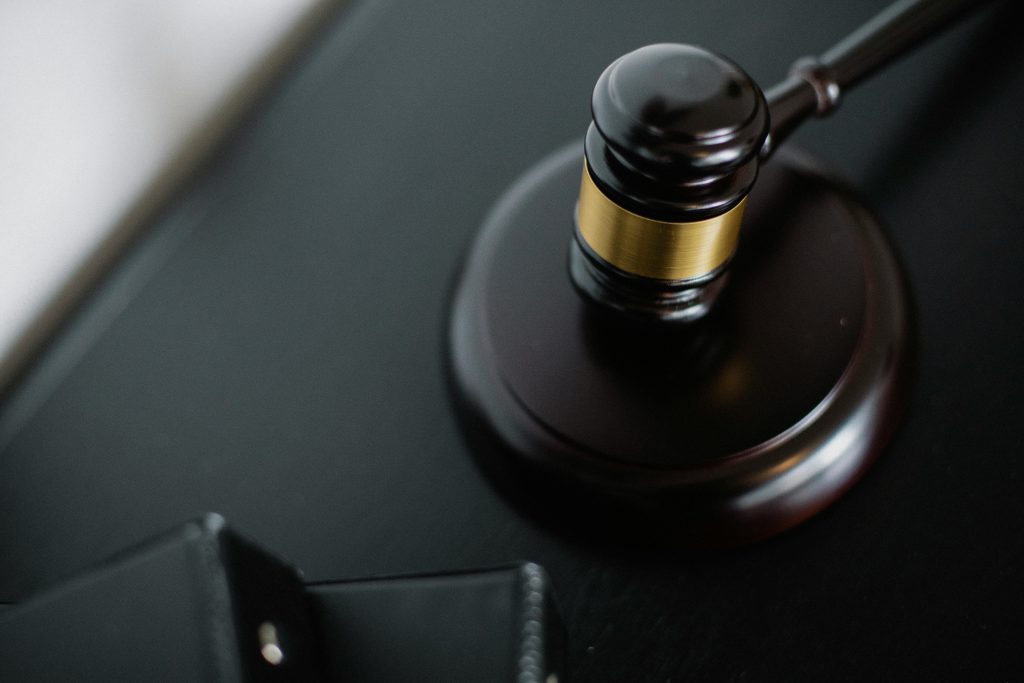
Andrea: “Early on in my career, I could see that there were numbers and there were in fact people listening to the show. But beyond that, who were they? I don’t really know.
My guess is that they were other small business owners who either had been featured or had worked with that agency or had a cause that was important to them, and they did tell me at one point in time that they were intentionally sending snippets of these episodes to policymakers on key topics so they could use that to say:
Hey, we need to do X, Y, Z, or we need to take a look at this bill that’s pending right now in the state senate and how this is how it’s going to affect our business owners. And here is direct anecdotal commentary that has more of an emotional weight to it than just like stats and numbers on a graph.”
Megan: “It can make such a big difference. And it’s so fascinating for these kind of podcasts.”
The Need for a Podcast Starts with a Problem
Andrea: “I had a pitch meeting — it wasn’t really a pitch meeting, it was more of an information gathering meeting with a potential new client who had told me, we’re definitely gonna start a podcast. I don’t listen to podcasts, and I’m not really even sure what one is.
And that was a mystery to me because I was like, did it come to you in a dream? Where did this idea come from? And she was very excited. I think it’s a little bit of column A and a little bit of column B. I know the opera. So they actually even had started recording before ever hiring someone because at first, they thought, well, we can just do this in-house.
Then they got to a certain point and they were like, we cannot do this in-house. We need help. And they had an initiative they were launching and it was called Opera for All Voices. That was the name of the initiative and they were commissioning new operas from American composers that could be performed in a variety of different settings that were around topics that were relevant to America.
So instead of opera being perceived as this uniquely European art form, what is American opera? And the duo that came up with the concept for the podcast, they were funded initially by some grant money. So that’s another thing that comes into play with nonprofits and government agencies often is grant money.
And in order to satisfy that grant, they needed to have some evaluation of process of how they were going about doing this. And they were like, how can we evaluate the process as creatives? We’re administrators, but we’re also artists. So how can we evaluate the process in a way that is fun and creative?
And they’re like, well, we did call this initiative Opera for All Voices, and if we are gonna say all voices, we need to hear from all the voices. All the voices who are part of this initiative. Not just the singers. Not just the composers, but the designers and the stage managers and the people in the communities that if the opera was based on a historical event — people who were part of that community. So it became an extension of that.
I think a lot of times there’s a problem that they need to solve and if there’s somebody who’s tuned into podcasting and maybe they’ve secretly always wanted to be a podcast host or have a podcast, they’re like, this is what we can do a podcast about!
So I think it’s a little bit of column A and a little bit of column B.
Megan: “I think there’s something that’s similar in your work and in my work, even though we have these different audiences — it’s looking at podcasts as more than a podcast. It’s not just an interview where one host talks to one guest.
It’s a tool that’s specifically designed to accomplish a certain goal or solve a certain problem.
And as you engage, when you’re having these discovery calls, the new people who are maybe not super familiar with podcasting.”
Turning Podcast Excitement into Strategy
Andrea: “There’s so many different ways that you can go about creating the podcast and there’s so many different intentions, goals, purposes for that podcast. So a lot of times it’s about narrowing it down in the same way that people who work with small business owners and are helping them with a marketing plan or marketing strategy, and especially new business owners, and you say, well, who is your audience?
And they say, everybody, we want everybody. And this happens with podcasters too. I want everyone to listen to my show, as many people as possible. It’s for everybody. And you’ve heard it before, if it’s for everybody, it’s for nobody.
That is a similar thing that’ll happen is you get starry-eyed, you get excited about podcasting. You know that there are podcasts like Joe Rogan or whoever that have huge audiences and you think, I want everyone to enjoy this show and I want it to bring new customers.
I want it to bring on guests that we can have great conversations with. I want it to fulfill our nonprofit mission. I want it to replace this old piece of media or complement this old piece of media in a new and exciting way.
You have all these different things you want it to do, and it’s like, okay, let’s focus on what is one or two things that if this were to happen, if this were to occur, we would be feeling awesome; this would feel totally worth it. This would feel great — and we worry about how we justify that to the money folk down the road.
But just taking all of these ideas and since I work primarily with creatives, it’s never a lack of ideas. We want to have a podcast, but we don’t know what it’s about and we don’t know what we would — it’s never that.
It’s always just trying to get them to pinpoint what is it that we’re really doing and what plays to our strengths.”
Connect with Andrea Klunder
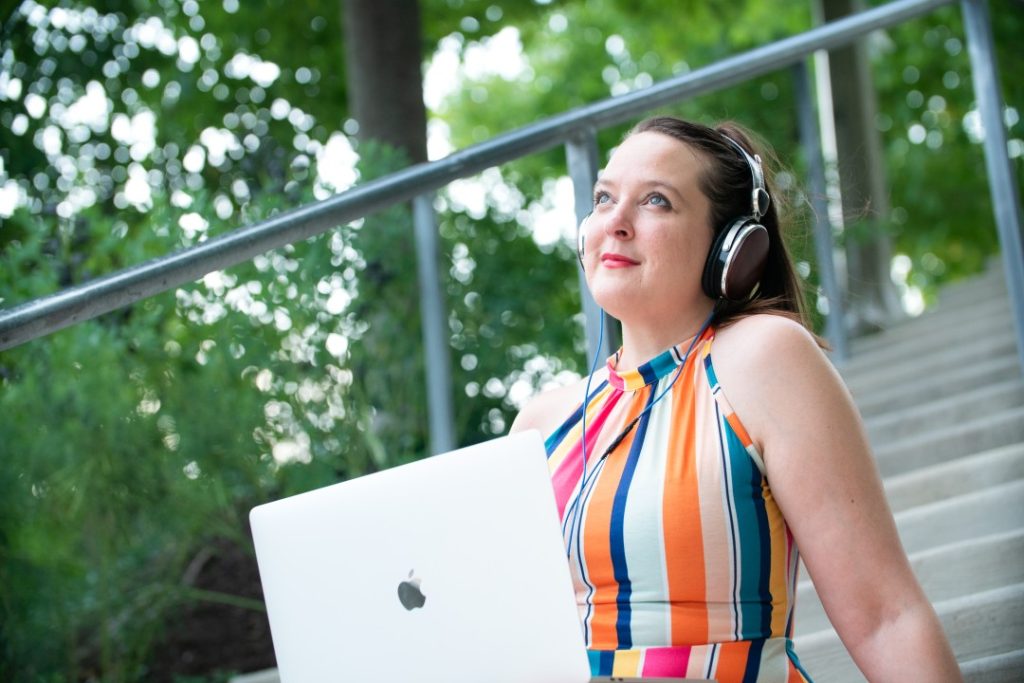
Andrea: “I do have a podcast of my own. It is sometimes in production and sometimes not all of the podcasting advice that I give to my clients, all of the strategy, all of the best practices — I don’t do any of it. That’s my confession.
I’m so focused on the strategy, the consistency, the quality, the schedules of their shows that my show is like, oh, I want to produce more episodes, but I’m running out of time and energy. So I produce my show, which is called The Creative Imposter, when I can, and I release it when I can.
I try to make sure that the episodes are really interesting and compelling and that I am building rapport with my audience, even if it is a little bit inconsistent in terms of release date.
So you can find The Creative Imposter on your favorite podcast platform, and also you can find me at my website, thecreativeimposter.com.”
Final Thoughts
This was so much fun. I always love to get the chance to chat with a producer serving a different market — the different needs of larger organizations, or those with different kinds of constraints like grant funding, mission alignment, and multiple stakeholders create the conditions for all kinds of creativity.
You’ll find links to some of the shows Andrea mentioned in the show notes for this episode, as well as how to connect with Andrea and the Creative Impostor Studios!
While I’ve got you here — have you gotten your ticket for the Podcasting for Business Conference yet?
Andrea is going to be one of our expert presenters in a panel on one of the most critically under-discussed topics in podcasting — our voices. The Panel is called Your Voice: Using It, Shaping It, Protecting It, and Andrea, along with Mary Chan and Brienne Hennessy are going to be helping all of us level up how we think about and use our most important podcasting tools.
Head over to pfbcon.com and get your ticket today!
Podcasting for Business – The Book
In case you haven’t gotten it yet, my book Podcasting for Business: How to Create a Show That Makes a Bottom Line Difference for Your Company, is available now!
If you think your podcast should be a little bit more profitable (or a lot more profitable), I highly recommend that you check it out.
There’s going to be some great information there for you.
Podcasting for Business Conference 2024
We’ve got over a dozen expert presentations, expert Q&A, panel discussions, workshops, and lots and lots of networking opportunities.
It’s happening from November 13th to 15th this year. Learn more about PFBCon here.
Be A Guest on The Company Show
Do you have a podcast that’s making a major difference in your business or know one that is? Fill out this contact form and let us know about it.
We’d love to have you here for an episode like this one!
Need A Podcast?
As always, this is Megan Dougherty, and The Company Show was made possible by the team at One Stone Creative.
If you know a business owner that you think should have a podcast, do us a favor and send them to podcastingforbusiness.com!
Key Quotes
“Whatever the mission of that organization is… if you can help them fulfill that mission in a way, then you are doing your job.” – Andre Klunder
“Podcasting is a tool specifically designed to accomplish a certain goal or solve a certain problem.” – Megan Dougherty
Resources
One Stone Creative | LinkedIn | Twitter | Facebook | Instagram
- Pre-order the book, Podcasting for Business
- Pre-ordering will get you a free ticket to PFBCon 2024
Learn about what other business podcasters are doing:
Andrea Klunder | Website | Podcast | LinkedIn | Instagram

